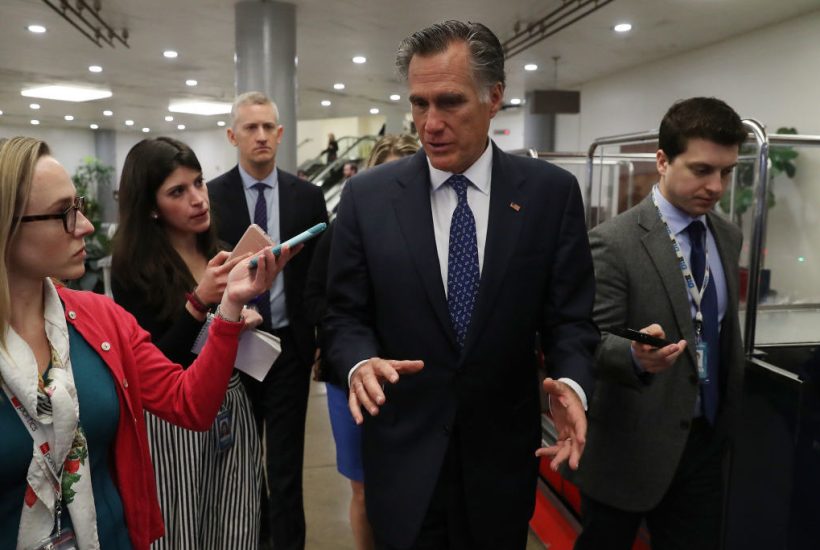The normally sober Associated Press is reporting the Senate’s vote to overturn Trump’s declaration of emergency in the southern border as ‘a stunning rebuke’ and ‘a remarkable break between Trump and Senate Republicans.’ But it isn’t.
The 12 Senate Republicans who joined forces with every Democrat in the vote to annul Trump’s declaration did so for predictable ideological reasons.
Already a subscriber? Log in
Subscribe for just $2 a week
Try a month of The Spectator Australia absolutely free and without commitment. Not only that but – if you choose to continue – you’ll pay just $2 a week for your first year.
- Unlimited access to spectator.com.au and app
- The weekly edition on the Spectator Australia app
- Spectator podcasts and newsletters
- Full access to spectator.co.uk
Or





















Comments
Don't miss out
Join the conversation with other Spectator Australia readers. Subscribe to leave a comment.
SUBSCRIBEAlready a subscriber? Log in